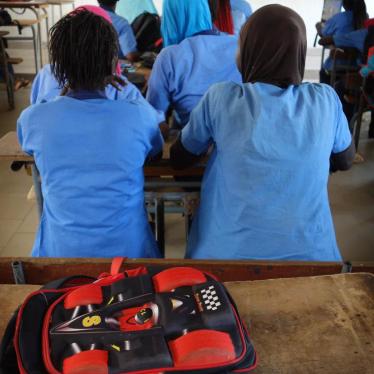Mr. President,
Human Rights Watch stresses the importance of addressing colonial legacies to tackle the root causes of systemic racism. For the fulfillment of human rights around the world and for all, we need racial justice and accountability for entrenched legacies of slavery and colonialism by some of the most powerful countries. Reckoning with continuing historic legacies also requires reparation—including restitution and compensation—for colonized and enslaved victims and their descendants, who still suffer the harms, losses and inequities of these legacies.
Former colonial powers too often refuse to reckon with their past. People affected by colonialism are still fighting to receive full reparations, including their right to return to their homeland as is the case of the Chagossian people who were forcibly displaced by the UK and the US and continue to be prevented from returning. In the few examples of reparations processes that do exist, such as Germany’s efforts on its colonial era crimes in Namibia, states choose not to consult communities meaningfully during negotiations, instead approaching it as an inter-state issue. Reparations processes should be victim-centered, in accordance with the right to an effective remedy under international law.
Immigration systems of former colonizers can treat people from their former colonies as second-class citizens. The Windrush generation in the UK, were invited by the UK government from the former British colonies in the Caribbean after World War II to rebuild the country. Half a decade later, these Black Britons are still fighting for their right to an effective remedy after being wrongfully treated as illegal immigrants.
The Human Rights Council should reiterate that for equality and equity, we need an urgent reckoning with dark chapters in history which otherwise continue to live on today. To achieve that, people affected by colonialism and its impact on contemporary abuses should be centered in all actions.







